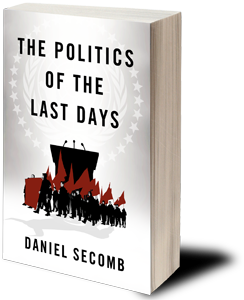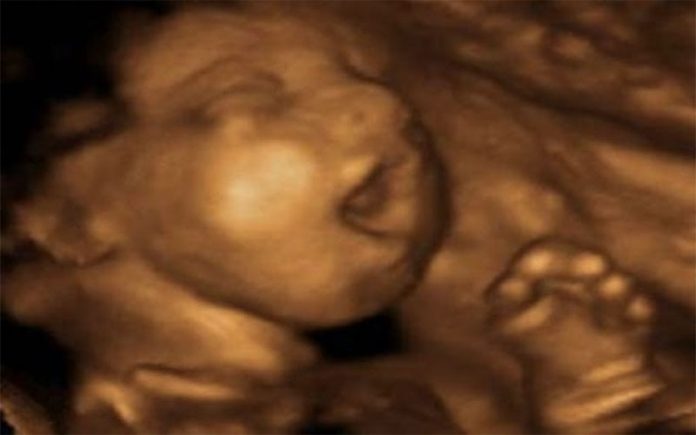A new bill in the Ohio legislature would ban all abortions in the state by recognizing unborn babies as people protected under the law.
Sponsored by state Reps. Ron Hood and Nino Vitale, Ohio House Bill 565 would prohibit all abortions in Ohio, ABC 6 News reports.
“The goal of this bill is to first of all continue to get the word out that life does begin at conception and move the debate in that direction, and to protect unborn Ohioans from being aborted,” Hood said, according to The Hill.
“We make it very clear in the state of Ohio we consider the unborn child a person just like you, me or any other person that has a right to life,” he continued.
Abortion activists with NARAL quickly blasted the legislation, claiming it is unconstitutional.
“Anti-choice extremists from the Ohio Statehouse to the White House are lining up their dominoes to topple Roe v. Wade and punish those who seek or provide abortion care,” said Kellie Copeland, NARAL Pro-Choice Ohio executive director, in a statement.
According to The Hill, the bill does not include exceptions to save the life of the mother, and would make abortion a crime.
Abortion groups have succeeded in overturning similar laws in court. In 2012, the Oklahoma Supreme Court struck down a similar personhood bill as unconstitutional because it recognized unborn babies as human beings who deserve the right to life.
Though these lawmakers have good intentions to save unborn babies’ lives, personhood legislation, even if upheld in court, may not make abortions illegal. When considering a Missouri statute in 1989, U.S. Supreme Court Chief Justice William Rehnquist ruled that the personhood statute was nothing more than a statement of position that had no bearing on banning abortions or even limiting them in any way.
The state of Missouri had approved a statute saying, “the life of each human being begins at conception” and “unborn children have protectable interests in life, health, and well-being.” The statute required that all Missouri state laws be interpreted to provide unborn children with rights equal to those enjoyed by other persons.
The U.S. District Court for the Western District of Missouri struck down that provision and the abortion limits, the U.S. Court of Appeals for the Eighth Circuit affirmed and ruled they violated Roe.
The U.S. Supreme Court then ruled that it did not need to consider the constitutionality of the law’s preamble, defining personhood at conception, as it could not be used to support any abortion laws that conflicted with Roe. Chief Justice William Rehnquist wrote the decision and Justice Anthony Kennedy joined in the opinion. Ultimately, the Supreme Court upheld the personhood language Missouri used decades ago but did not allow it to ban — or even limit — any abortions.
Therefore, most pro-life groups believe one of the keys to ending legalized abortion is overturning Roe v. Wade. The current Supreme Court justices are highly unlikely to do so, with conservative-leaning justices holding four of the nine seats.
President Donald Trump promised to nominate “pro-life” justices to the high court, but he would need to nominate and the Senate would have to confirm several before there is a chance of Roe v. Wade being overturned.
Source: LifeNews.com
 Register your interest for Daniel Secomb's new book, "Politics of the Last Days"
Register your interest for Daniel Secomb's new book, "Politics of the Last Days"
Daniel's new book explores the integral and fascinating role that politics will play in the end times.
He demonstrates that political philosophy is actually underpinned by biblcal principles and that by examining the political history of the past can give us a fascinating glimpse into how Biblical end times events will unfold.
Be sure to sign up with your name and email address to be notified of updates and the upcoming release date of the book.


















